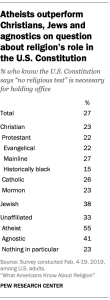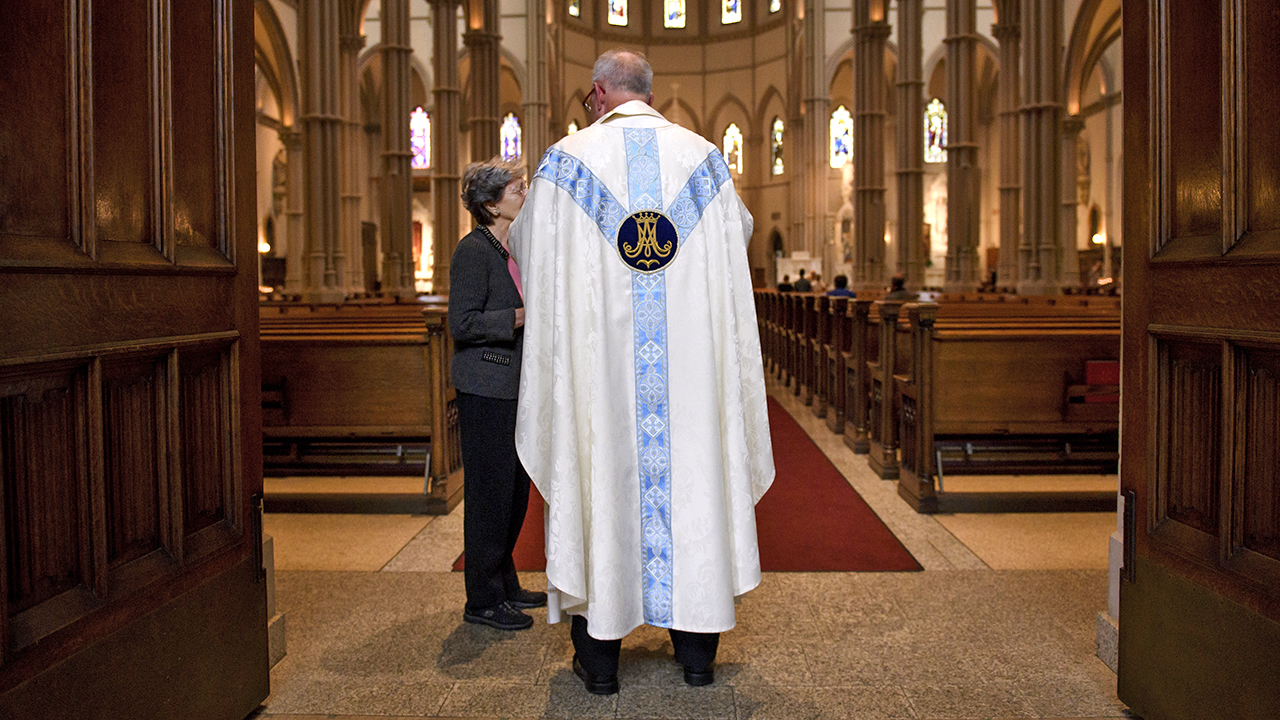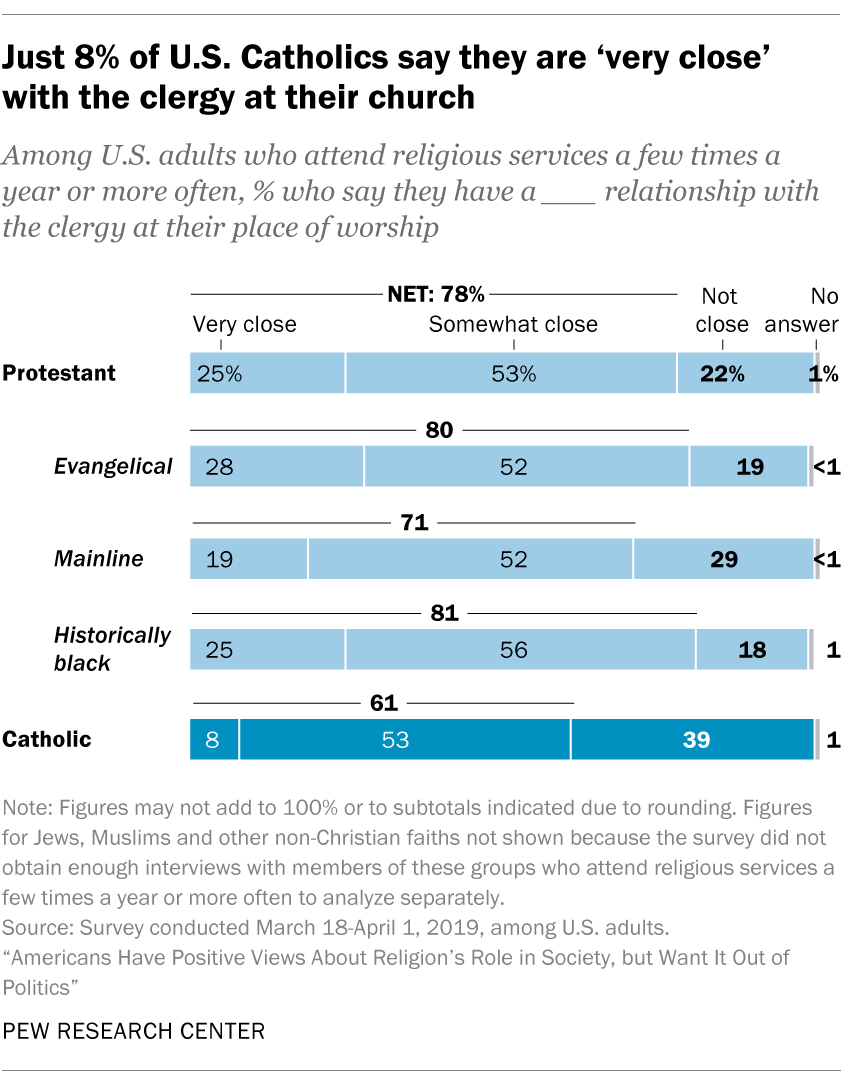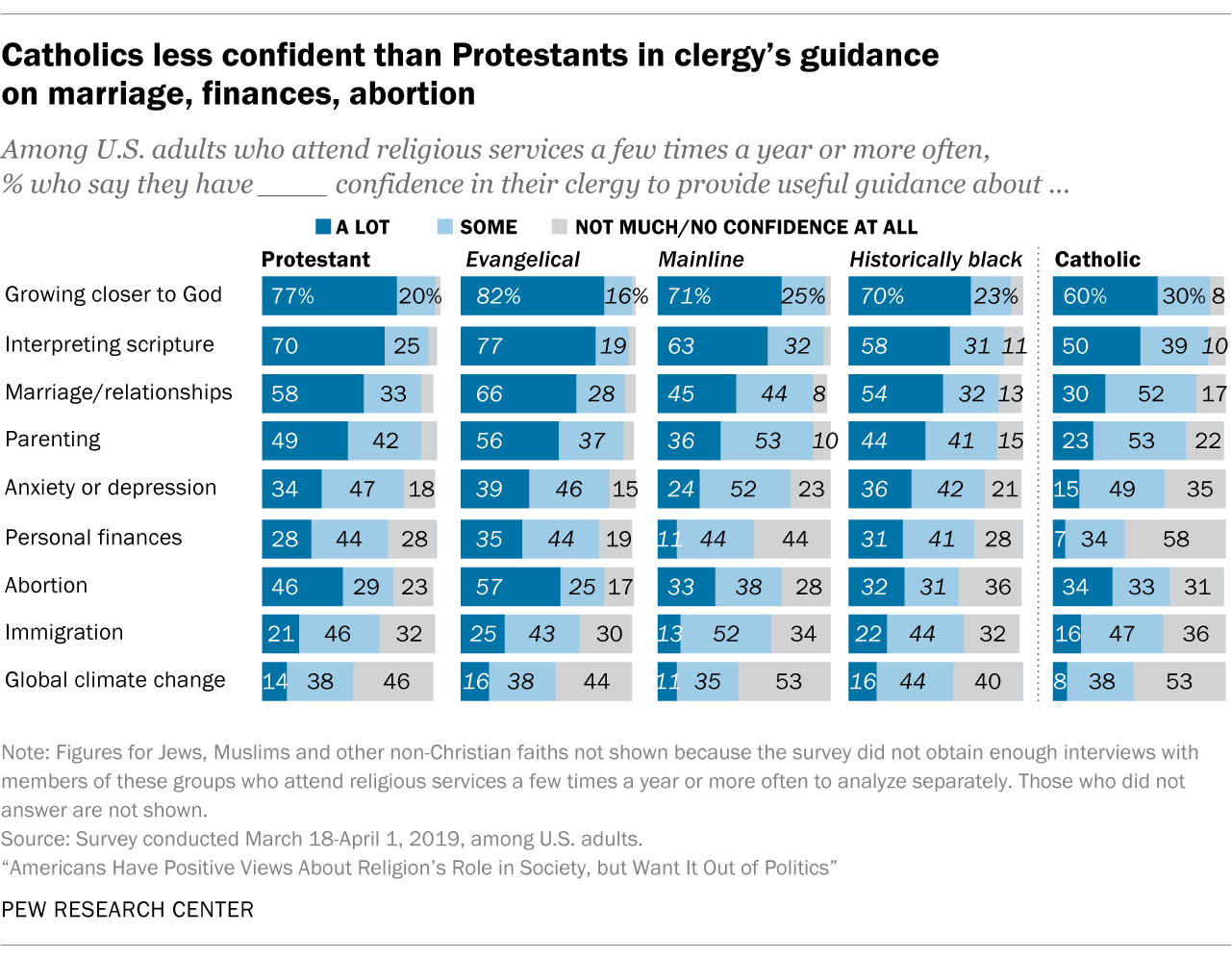

Most U.S. adults who attend religious services express confidence in their clergy’s advice on a range of questions, at least to some degree. But a recent Pew Research Center survey finds that Catholics have considerably less confidence than Protestants – and are less likely to claim a close relationship with their clergy.

Among U.S. adults who attend religious services at least a few times a year, Catholics are less likely than Protestants to say they have a “very” or “somewhat” close relationship with their clergy. Six-in-ten Catholics (61%) say this, compared with about eight-in-ten Protestants (78%). Just 8% of Catholics say they are very close with their clergy, compared with a quarter of Protestants. And while only 22% of Protestants say they are not close with the clergy at their church, the share among Catholics is nearly twice as high (39%).
Among specific Protestant groups, those in the evangelical (80%) and historically black traditions (81%) are more likely than mainline Protestants (71%) to say their relationship with their clergy is at least somewhat close. All three Protestant groups, however, say they have a closer relationship with their clergy than Catholics do.
Catholics, Protestants differ over clergy guidance
Catholics and Protestants also express varying levels of confidence in their clergy’s advice about personal issues and religious topics. Only three-in-ten Catholics, for instance, say they have “a lot” of confidence in their clergy’s guidance about marriage and relationships. Larger shares of evangelical Protestants (66%), Protestants in the historically black tradition (54%) and mainline Protestants (45%) say the same. And Catholics are much less likely than Protestants overall to trust their religious leaders to give useful advice on parenting (23% vs. 49%, respectively).

When it comes to religious questions, confidence in clergy is more widespread, but the gap between Catholics and Protestants remains. Six-in-ten Catholics have a lot of confidence in their clergy’s advice about growing closer to God, compared with seven-in-ten Protestants from mainline or historically black churches and eight-in-ten evangelical Protestants. Catholics also are less likely than Protestants overall – particularly evangelical Protestants – to place a lot of confidence in their clergy’s guidance about interpreting scripture.
However, both Protestants and Catholics express fairly low levels of confidence in their clergy to provide guidance on political topics such as abortion, immigration and global climate change. While Pope Francis regularly speaks about immigration and climate change, small shares of Catholic Mass-goers have a lot of confidence in their clergy’s guidance on immigration (16%) and global climate change (8%). Among Protestants, one-in-five or fewer have a lot of confidence in their clergy to provide guidance on these issues.
Views of abortion guidance are more divided. Evangelical Protestants are much more likely to have a lot of confidence in their clergy’s ability to provide useful guidance on abortion (57%) than are Catholics or Protestants from mainline or historically black denominations (roughly a third for each of these groups.)
Note: See full topline results and methodology.
